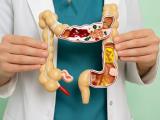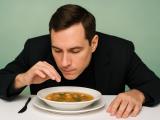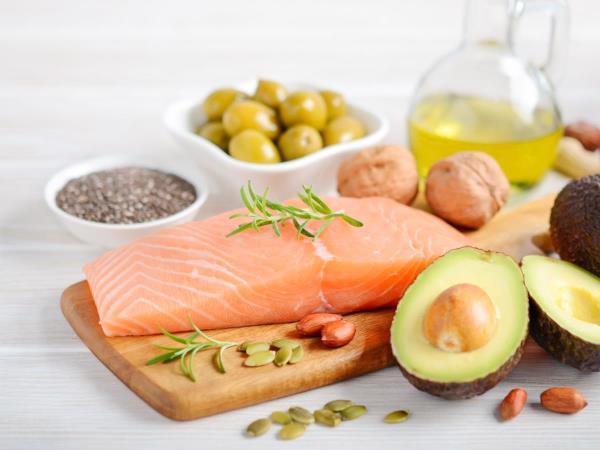When you wake up in the morning, your body is like an old farmhouse stove: the heating is just starting. In the early hours, blood sugar levels are usually lower, as are glycogen stores - this is the form of sugar that our body stores in muscles and liver to use for energy later on. When these stores are depleted, the body has no choice but to start burning fat. And that's the beauty of exercising in a fasted state.
In 2013, British researchers published an interesting study in the British Journal of Nutrition, where 12 physically active men ran on a treadmill for one hour: once after breakfast, and once on an empty stomach. The result? Those who exercised without having breakfast burned 20% more fat than their counterparts. Twenty percent is quite significant. That's almost a quarter more fat burned with the exact same workout!
Although this study was small, it was supported by later research as well. In 2015, researchers in the prestigious scientific journal EBioMedicine found that fats are burned most intensively when exercising on an empty stomach, and these processes continue for up to 24 hours after the workout.
But what about women?
Here we also have good news. In 2017, a study published in the journal PLoS One proved that exercising on an empty stomach also benefits women. Nine women participated in a 24-hour study, where some performed one hour of moderate exercise before breakfast, while others did not. And as shown by the scientific method of calorimetry (which measures how much energy the body uses in a given time), the group that exercised on an empty stomach burned more fat throughout the day than the group that did not exercise.
What does fat oxidation mean?
It is a concept often encountered in scientific articles, but it is fundamentally simple. Oxidation means burning. So when scientists talk about fat oxidation, they simply refer to how the body burns fat stores for energy. And apparently, it burns them more efficiently when we train in the morning without food.
Fasting and movement
If you ask our grandmothers how they maintained their slim figure, they will tell you something that now sounds like advice from a biohacking conference: In the morning, you should go out in the garden or for a walk before eating anything (heavy). And they are right.
Fasting, consciously avoiding food for a certain period, has been present in folk healing practices for centuries. Ayurveda, traditional Chinese medicine, and even ancient folk practices mention a morning walk or light physical activity before breakfast as a way to invigorate the liver and detoxify the body.
Although fasting has become a modern biohacking practice today (shaped as intermittent fasting), it is actually an ancient wisdom that our ancestors used instinctively. They worked first and ate only after the work was done.
What else influences morning fat burning?
Here comes something called the circadian rhythm, a natural internal clock that regulates how our body functions. This rhythm controls wakefulness, body temperature, appetite, metabolism, and even hormone levels as if we had a built-in clock. According to research from the American National Institute of Health (NIH), cortisol levels are highest in the morning. Cortisol is a hormone that helps release energy. If this hormone is utilized through physical activity, the effect on fat burning is even greater.
What about those who can't skip breakfast?
Sometimes, the feeling of an empty stomach can be uncomfortable. But the good news is that it's not necessary to starve completely. If you are one of those who feel nauseous at the slightest effort in the morning, you can have a little something, like half a banana. Not more. This way, you'll get some sugar for initial energy without significantly reducing the positive effect on fat burning.
A banana is an excellent choice, as it contains natural sugars and potassium, which helps prevent muscle cramps.
What do the numbers say?
Data from the European Journal of Sport Science show that moderate morning exercise on an empty stomach leads to greater long-term weight loss. In a 6-week study, the group that exercised on an empty stomach lost an average of 1.4 kg more fat than the group that exercised after a meal.
Data from 2022 published by the American Council on Exercise state that just 30 minutes of moderate fasting exercise increases the rate of fat burning by up to 28% compared to exercising after eating.
What about appetite?
Interestingly, exercising on an empty stomach does not lead to overeating later on. On the contrary. Researchers from the University of Tokyo found in 2018 that people who exercise before breakfast consume an average of 300 fewer calories later in the day than those who exercise after a meal.
This phenomenon could be explained by regulating the hunger hormone, ghrelin. Exercising on an empty stomach seems to reduce its levels in the morning, meaning you will be less hungry for the rest of the day.
When is exercising on an empty stomach not recommended?
It is important to emphasize: exercising without breakfast is not for everyone. If you are someone who wants to increase strength, speed, or muscle mass, then exercising on an empty stomach may not bring the best results. It's difficult to perform high-intensity exercises without energy reserves in muscles. This also applies to people with health issues, such as low blood pressure or hypoglycemia, where consulting a doctor before changing your routine is necessary.
Sometimes grandmothers knew more than laboratories
Today, we are returning to a practice known for generations before us: physical activity on an empty stomach. Although it was once recommended to invigorate the body, we now know that it activates fat burning, increases metabolism, and improves the body's metabolic response.
If your goal is to lose excess weight, reduce waist circumference, and improve overall well-being, consider whether next time you should put on your sneakers first thing in the morning before reaching for a spoon.
Perhaps the only breakfast your body truly needs is already hidden in your fat stores. You just need to utilize it.
Datum: 22. JUL 25 - GOOD TO KNOW
How to achieve maximum fat burning?
In the morning, blood sugar levels are at their lowest, as are glycogen stores. When these stores are depleted, the body has no choice but to start burning fat ... How to achieve this?
(FW)
 Would you like to be informed about news on the website?
Would you like to be informed about news on the website?
Just enter your e-mail
Maximum fat burning
Exercising on an empty stomach
Morning fat burning
Fat oxidation
Fasting and movement
|
Copyright (c) Foodwhisper.com March 2018 |
π | Contact: info@foodwhisper.com |
About us | Facebook |  |









